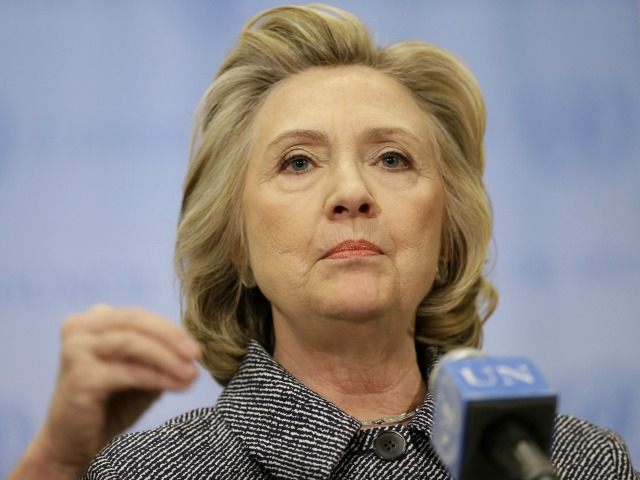Though President Bill Clinton signed the nation’s Religious Freedom Restoration Act (RFRA) into law, his wife has denounced similar laws put forward in states such as Indiana and Arkansas, preferring instead to create an image of faith as subservient to the institutional left’s militant LGBT agenda.
Like IN law, AR bill goes beyond protecting religion, would permit unfair discrimination against #LGBT Americans. I urge Governor to veto.
— Hillary Clinton (@HillaryClinton) April 1, 2015
Sad this new Indiana law can happen in America today. We shouldn't discriminate against ppl bc of who they love #LGBT http://t.co/mDhpS18oEH
— Hillary Clinton (@HillaryClinton) March 27, 2015
In his remarks during the signing ceremony for the RFRA on November 16, 1993, President Clinton said:
It is interesting to note, as the Vice President said, what a broad coalition of Americans came together to make this bill a reality. It’s interesting to note that that coalition produced a 97-to-3 vote in the United States Senate, and a bill that had such broad support it was adopted on a voice vote in the House.
I’m told that, as many of the people in the coalition worked together across ideological and religious lines, some new friendships were formed and some new trust was established, which shows, I suppose, that the power of God is such that even in the legislative process miracles can happen. (Laughter.)
We all have a shared desire here to protect perhaps the most precious of all American liberties, religious freedom. Usually the signing of legislation by a president is a ministerial act, often a quiet ending to a turbulent legislative process. Today, this event assumes a more majestic quality because of our ability together to affirm the historic role that people of faith have played in the history of this country and the constitutional protections those who profess and express their faith have always demanded and cherished.
…
As the Vice President said, this act reverses the Supreme Court’s decision, Employment Division against Smith, and reestablishes a standards that better protects all Americans of all faiths in the exercise of their religion in a way that I am convinced is far more consistent with the intent of the founders of this nation than the Supreme Court decision.
More than 50 cases have been decided against individuals making religious claims against government action since that decision was handed down. This act will help to reverse that trend–by honoring the principle that our laws and institutions should not impede or hinder, but rather should protect and preserve fundamental religious liberties.
The free exercise of religion has been called the first freedom–that which originally sparked the development of the full range of the Bill of Rights. Our founders cared a lot about religion. And one of the reasons they worked so hard to get the First Amendment into the Bill of Rights at the head of the class is that they well understood what could happen to this country, how both religion and government could be perverted if there were not some space created and some protection provided. They knew that religion helps to give our people the character without which a democracy cannot survive. They knew that there needed to be a space of freedom between government and people of faith that otherwise government might usurp.
President Clinton also said, “Let us never believe that the freedom of religion imposes on any of us some responsibility to run from our convictions.” He concluded with this admonition: “Let us instead respect one another’s faiths, fight to the death to preserve the right of every American to practice whatever convictions he or she has, but bring our values back to the table of American discourse to heal our troubled land.”

COMMENTS
Please let us know if you're having issues with commenting.